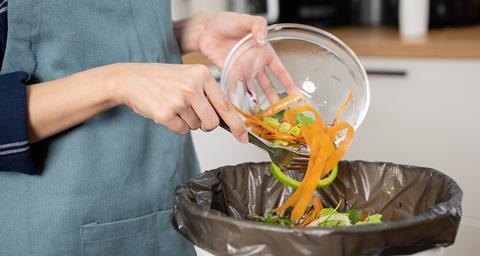Companies that produce more than 5kg of food waste per week will be have to store wasted food in separate bins and arrange for its collection by licensed waste carriers

New food waste legislation for businesses is set to come into force in the UK from March 2025.
According to Defra, the new law means most businesses will have to separate food waste from other waste streams. This will ensure that less wasted food goes to landfill and is instead disposed of responsibly.
Companies that produce more than 5kg of food waste per week will be required to store wasted food in separate bins and arrange for its collection by licensed waste carriers.
This includes any biodegradable material waste produced from processing or preparing food – including inedible parts like fruit and vegetable skins, bones, eggshells, tea bags, and coffee grounds.
Nevertheless, the government says the ideal solution is for unavoidable food waste to be treated in an anaerobic digestion (AD) plant, which generates biofuel and digestate.
Biofuel can be used for energy while digestate is spread on land to recycle nutrients and help form a circular economy.
The new law is set to come into effect on 31 March 2025. It is part of Defra’s simpler recycling plans, which aim to improve recycling rates, simplify waste management, and benefit the environment.
While Wales and Scotland already have their own food waste legislation in place, the government hopes this law will drive England closer to the target of eliminating food waste from landfill by 2030.
Mandatory food waste separation will also apply to all non-domestic properties in England such as care homes, offices, schools, garages, and transport hubs.
It is especially relevant for restaurants, cafes, pubs, takeaways, bakeries, and butchers.
Meanwhile, micro businesses (firms with fewer than 10 full-time employees) are exempt from the new food waste regulation until 31 March 2027. These firms can still dispose of food scraps and leftovers in general waste bins.
Co-founder of BusinessWaste.co.uk, Mark Hall said: “It’s a big win for the environment and it aligns well with the government’s sustainability goals.
“We are geared up to help businesses comply with these regulations, ensuring a smoother transition to greener waste management practices.”



